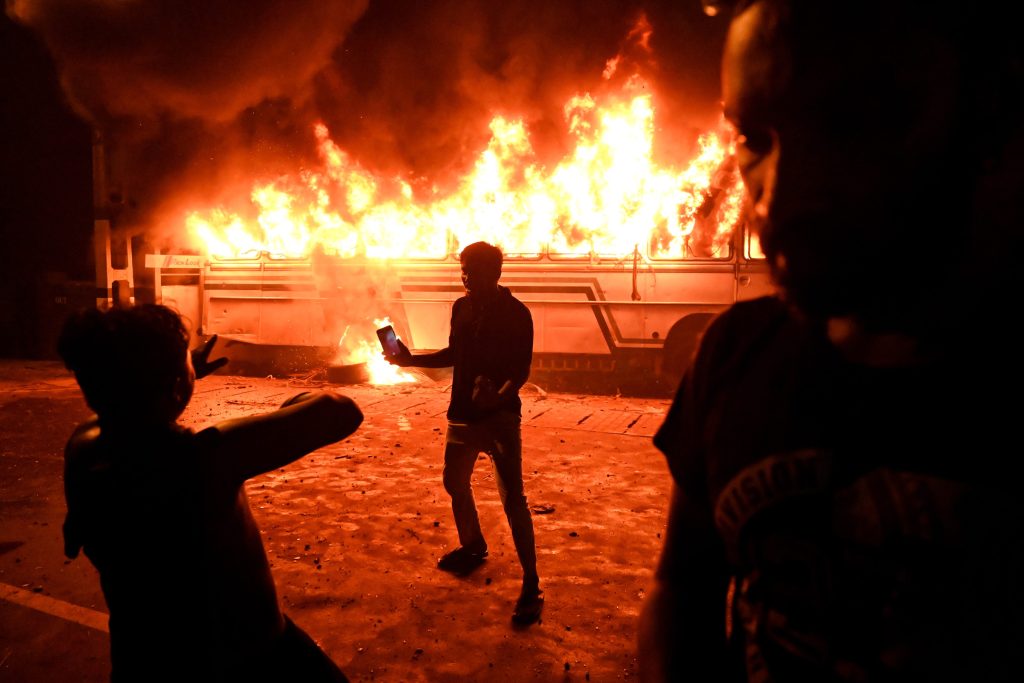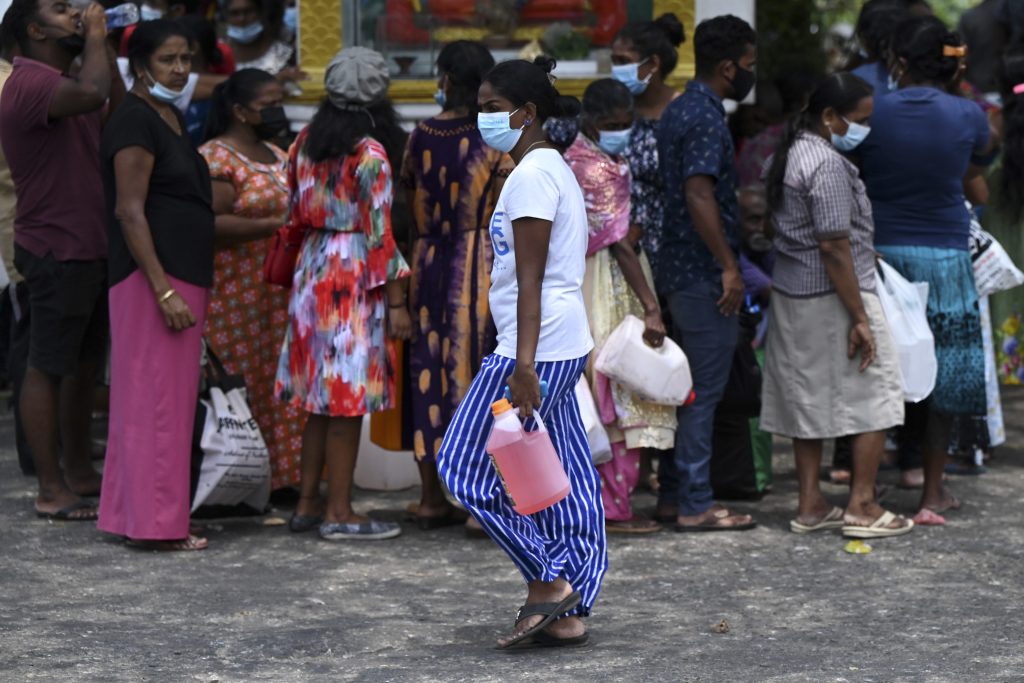The Catholic bishops of Sri Lanka warned against violence amid the worsening economic crisis in the country and called on the government to immediately effect changes to the country’s economic policies, and even to the Constitution.
In a pastoral statement, the Catholic Bishops’ Conference in Sri Lanka expressed “serious concern on the sad situation that has arisen in the country” due to the unprecedented economic downturn that has left several staple foods in short supply, along with petrol and medicines.
The statement, which was signed on June 10 following the prelates’ plenary assembly, noted that “people are stranded on the roads,” “patients are left in the lurch without medicine,” and “parents are yearning to find milk food for infants and children.”
“The tragedy that has struck our nation is in no uncertain terms the worst of our times,” said the Church leaders, adding that the political and economic crisis “has made people to suffer unjustly.”
“Those responsible for this horrendous economic crisis are yet to be exposed,” read the bishops’ statement, adding that the major causes of the economic crisis “have been rampant corruption and absolute mismanagement on the part of successive governments and political instability.”
They then called for “necessary changes to the economic policies as well as to the Constitution.”
“It is so unfortunate that our leaders have allowed the 20th Amendment to be passed in parliament,” said the bishops.
The 20th amendment to Sri Lanka’s Constitution allows the president to exercise executive and constitutional powers, including appointing anyone in the government office, without the permission from members of parliament.
“We believe that such constitutional change should lead to a legislature based government,” said the Church leaders.
They also called for the “absolute independence of the judiciary” and all other commissions, “subject only to the guidance of the parliament.”
“This way, true democracy can be re-instituted in the country,” read the bishops’ statement that was released to the media on Thursday, June 16.


‘Desist from violence’
In the same statement, the bishops urged everyone “to desist from violence” as they appealed to the government to respect the legitimate right to freedom of expression and movement of the people.
“The unfailing protests and demonstrations especially of youthful citizens that have led to address the need for a system change is to be recognized,” said the prelate.
They noted that the “failure of the system” has compelled the entire population to clamor for “radical change.”
The Church leaders called on the government to provide basic food items to the poorest of the poor amid the rising prices of basic necessities.
They said that the Catholic Church, through its social action arm, has been doing its best to help by distributing food packages in dioceses and parishes.
“Nevertheless, this way of providing for the needy cannot go on,” said the bishops.
They urged the interim government to address the economic issues and “liberate the people from their day to day sufferings.”
“We earnestly urge the government to take drastic steps to address these issues and bring about justice, equity, and open the way for our children and youth to have a country to live with dignity,” said the bishops.


Grow food
The government has earlier urged the country’s civil servants to take an extra day off each week to grow crops in their backyards in a bid to forestall a looming food shortage.
“It seems appropriate to grant government officials leave for one working day of the week and provide them with the necessary facilities to engage in agricultural activities in their backyards,” a cabinet statement said Tuesday.
The extra day off would be a “solution to the food shortage that is expected to occur in the future,” the statement read, adding that cutting down on civil servant commutes would also help reduce fuel consumption.
Last week, the United Nations warned Sri Lanka was facing a “dire humanitarian crisis,” and said four out of five people in the nation of 22 million were forced to skip meals.
Sri Lanka has defaulted on its US$51 billion foreign debt and is in talks with the International Monetary Fund for a bailout.
Public protests have demanded the resignation of President Gotabaya Rajapaksa over mismanagement of the country’s economy and the severe hardships facing its people.
Rajapaksa introduced sweeping tax cuts soon after coming to power in November that have been blamed for leaving the island without the means to pay for essential imports.
The cash shortfall was worsened by the COVID-19 pandemic, which savaged the local tourism industry and cut remittances sent back home by Sri Lankans working abroad. – with additional report from Agence France Presse


